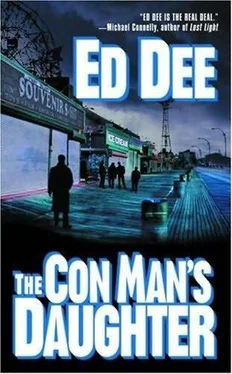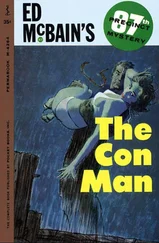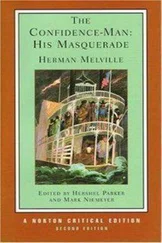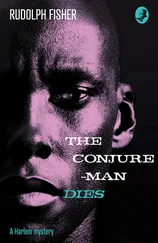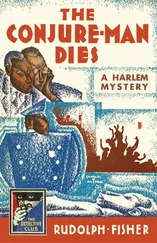Kevin hoped the step back in time would help lure back several decades' worth of Yonkers kids who'd moved upstate, the majority of them less than an hour away. Nostalgia was the hook. Kevin scoured the city, collecting old street signs and photographs of the city: the trolleys, Getty Square, the Schoolboys' Race, the Sacred Heart High School Bagpipe Band, the Yonkers Marathon, dozens of high school sports photographs, and Eddie Dunne's face on the cover of Ring Magazine . Every time you looked at the walls, a new black-framed remembrance stared back at you. Most of the former Yonkersites who appreciated these images were in or near retirement. Kevin's goal was to trade regular trips down memory lane for some of their discretionary income.
The plan included a series of special nights: Gorton High School night on the second Thursday of every month; Sacred Heart on the third Tuesday; Yonkers Fire Department and PD retirees, and so on. "Mini-reunions," he called them. All he had to do was contact the alumni associations and word of mouth would be all the advertising they'd need.
The limited menu presented the biggest problem. The present limit was one dish a night, and Martha was adamant about sticking to that. "The customers are family," she said. "Family members do not get a menu." On Sunday, the lone entree was pot roast, mashed potatoes, and string beans. The same vegetables came with the entries all week long. Occasionally, a seasonal vegetable would replace the string beans. Monday brought roast chicken; Tuesday, liver and onions; Wednesday, franks and beans; Thursday, beef stew; flounder on Friday; and Saturday was burger night. For the hard to please, burgers and fries were available every night except Friday. Saint Martha would not sell any meat on Friday, no matter what the old men in Rome decreed. But one Friday night, Kevin let a regular customer run to the corner to pick up a pizza for his fish-hating kids. Martha said, "There you go; the floodgates are open."
The usual Friday crowd surrounded the bar when Eddie walked in with a pizza and a box of cannolis. The subject at the bar was the latest plot of bartender B. J. Harrington. At issue was the wisdom of the deceptively tough Harrington's ongoing public effort to engage Britain's Prince Charles in a boxing match to decide possession of Northern Ireland. B.J. was attempting to have a crown he had purchased at a theater auction declared the official crown of the king of Ireland. Possession of the official crown, he figured, would give him legal standing to challenge the Brits. Although he was twenty years older than the prince, B.J. was confident. He'd lined Eddie up to train him. Five rounds, winner take all. Registered letters were flying back and forth across the pond.
Babsie Panko and Grace waited for Eddie in a back booth. For him, it had been a day of carrying white boxes. Babsie grabbed the cannolis and put them on her side of the booth. "Dessert for later," she told Grace.
"Don't let Aunt Martha see the pepperoni," Grace said.
Babsie opened the pizza box and cut slices all the way through. She scooped them out one at a time and put them on the rose-trimmed plates Kevin had bought from a wholesaler on the Bowery. The restaurant had been all Kevin's doing. Their father, Kieran Dunne, had not emphasized food in his thirty years in the bar business.
"You look beat," Babsie said.
"I'm fine," Eddie said. "I'll go see if Kevin wants a slice."
"Your brother is putting new ice in the urinals," Babsie said.
"Why does he do that?" Grace asked.
"It's a guy thing," Babsie told her.
"It's stupid," Grace said.
"God, you're getting more like me every day," said Babsie.
Grace ate half a slice, then went to the jukebox to press numbers. The Wurlitzer played only songs from the fifties, mostly doo-wop and Elvis. You didn't need quarters; Kevin kept it on free play. An Irish bar without music, he claimed, was just another wake.
"What happened with the feds today?" Babsie said.
"Nothing helpful. How's Kate's bedroom working out for you?"
"It's fine."
"If I haven't said it before, Babsie, I really appreciate your moving in. I mean it."
"Expressing gratitude is an effective way of changing the subject. It forces a polite Polish Catholic girl like me to say, 'You're welcome.' I said it Now, let's try to remember that I'm not the baby-sitter; I'm the lead detective. Tell me about the meeting."
"They wanted to rehash the Rosenfeld case."
"That's your claim to fame, right? You and Paul Caruso. The shoot-out in Marine Park. You recovered a couple million dollars."
"Money that Rosenfeld had been laundering for Evesi Volshin from the gas-tax scam."
"Remind me how that worked," Babsie said.
Like all great rip-offs, the gas-tax scam was simple. A handful of gasoline distributorships were responsible for paying the twenty-eight-cents-a-gallon tax. Anatoly
Lukin, who worked for Evesi Volshin at the time, had front men buy wholesale gasoline for their distributorship. They then moved it, on paper, through a series of bogus corporations. The gas was sold to independent retailers at cut-rate prices. The retailers received a forged invoice stamped "All taxes paid." Of course, the taxes were never paid. Lukin always designated one of the corporations in the daisy chain as the "burn" corporation, the one required to pay the taxes. For years, nobody missed the tax money, but then investigators finally discovered the "burn" corporation was nothing more than a post office box in a dry cleaner's. The corporate principal was an elderly Russian émigrés, who suddenly disappeared.
"It's easy to believe the big money estimates," Babsie said. "Ripping off the government for twenty-eight cents for every gallon, and this went on for years. Boland said the money was coming in so fast, Rosenfeld had trouble washing it all. That's why he had it in his safe at home. He kept it there until he could move it."
"You talked to Boland?"
"He called me after you walked out of the meeting."
Babsie was wearing jeans and had her shoulder-length gray hair held back in a ponytail. Each time one of them took a slice of pizza, she closed the box and put the napkin holder on top to hold it down.
Eddie said, "They think that I took these black binders that contain the paperwork for a slew of phony corporations."
"Boland told me someone removed the binders from Rosenfeld's house after the double homicide and that they wound up in Lukin's possession. Now they're missing again. You're the natural suspect."
"I don't know where they are now, Babsie. But apparently, my partner sold them to Lukin after the Rosenfeld murder. I saw his brother Angelo today; he said that Paulie told Lukin I was in on it. I wasn't."
"I believe you. Your partner is another matter. He sold those black binders without you knowing it; no telling what else he did behind your back."
Kevin was hustling from one table to the next. Grace was telling him to "bend a leg." Eddie figured she meant "shake a leg." He loved the way the kids today were comfortable around adults. It wasn't like that when he was growing up. But it was a trade-off. In his day, the kids from the North End learned discipline and were pushed by the nuns and priests at St. Joseph's and Sacred Heart, and all the now-closed Catholic grade schools in every parish in Yonkers. Even the street kids, like the Dunnes and Pankos, came away with a great education.
"I have no idea why Paulie's head wound up at my door, Babsie."
"I don't doubt that for a second," she said. "But you gotta understand: Nobody trusted your partner, so they're gonna assume you're the same kind of guy."
"Paulie liked living large," Eddie said. "But he wasn't a money vacuum. It was more about the thrill of the scam. He was a guy who'd drive ten miles out of his way to buy a pack of untaxed cigarettes."
Читать дальше
